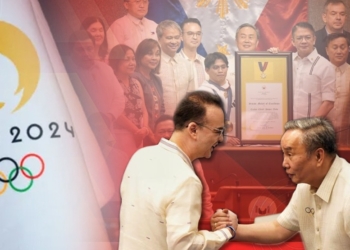Acknowledging the need for concrete solutions to recent fuel price hike amid the pandemic, former House Speaker Alan Peter Cayetano on Monday committed to prioritizing the passing of a “Relief, Reform, Recovery” bill if elected as Senator.
“Kumplikado itong problema [na kinakaharap natin]. Kaya kailangan extraordinary din ang solusyon,” Cayetano said in a radio interview on March 14, 2022.
(The issues that we are currently facing are complicated. That’s why we also need extraordinary solutions.)
Cayetano said his “Relief, Reform, Recovery” program resembles the United States’ response to the Great Depression, a period that saw a severe economic recession during the 1930s.
Relief: Distributing direct financial incentives
He said the relief program aims to distribute direct financial incentives and subsidies to Filipino families, especially those coming from the affected sectors.
“Example po ng relief [program] y’ung Sampung Libong Ayuda. Nagawa na natin iyan noong Bayanihan 1, bagkus two gives, P5,000. […] Ngayon, ang kailangan lang natin, five percent savings [ng lahat ng ahensiya ng gobyerno] na idedeklara lang ng Malacañang, may P250 billion ka na,” Cayetano said.
(One example of a relief program is the Sampung Libong Ayuda. We were able to implement it during Bayanihan 1, where money was distributed in two segments of P5,000 each. Now, each government agency just need to provide five percent of their savings through a directive from the Malacañang for us to allocate P250 billion in aid.)
“Then, of course, you need a law kung saan gagamitin ang pera,” the former Speaker added.
(Then, of course, you need a law to identify where the money should go.)
Reforming the current system
Meanwhile, the reform program seeks to implement permanent changes to the current system being implemented by the government, which Cayetano dubbed as inefficient and ineffective for the FIlipino people.
He pointed to reforms initiated in the Social Security System (SSS) and the Government Service Insurance System (GSIS) by President Rodrigo Duterte that have been beneficial to the people.
“Another example of a reform ay y’ung ginawa nila sa SSS (at) GSIS natin, kung saan mas malaki ang aasahan nila kapag nawalan sila ng trabaho,” he said.
(Another example of a reform is the one that they did to the Social Security System and the Government Service Insurance System, where Filipinos can now receive a larger amount when they lose their jobs.)
Cayetano was referring to Administrative Order No. 39 signed by President Duterte in April last year, which granted a one-time P20,000 financial aid to SSS and GSIS pensioners amid the pandemic.
But while there are programs like this, the former House Speaker said the government lacks a comprehensive aid system to help FIlipinos during crises.
Up to now, the government still does not have a list of fuel subsidy grantees considering that the transportation sector has always been a recipient of pandemic aid.
“Two years na tayong may pandemic, bakit hindi pa gumawa ng master list ang DOTr?” Cayetano said.
(We’re already two years into the pandemic, so why has the Department of Transportation not made a masterlist for aid recipients yet?)
Cayetano said he is eyeing reforms to the current administration’s processes in distributing aid so that affected sectors would receive it directly and more efficiently, namely transportation, hospitals, and quarantine hotels, among others.
Economic recovery: Aiding MSMEs
Lastly, Cayetano said he wants to facilitate economic recovery by implementing programs for micro, small, and medium enterprises (MSMEs) as well as agriculture.
He said the government can give interest-free or low-interest loans to MSMEs and farmers, with the payables depending on the duration and principal amount.
“More than 50 percent ng mga trabaho sa Pilipinas nanggagaling sa agriculture at sa micro, small, and medium-sized enterprises,” he said.
(More than 50 percent of jobs in the country come from agriculture and micro, small, and medium-sized enterprises.)
At the height of the pandemic last year, Cayetano proactively advocated for the implementation of a relief program through the 10K Ayuda Bill, which was consolidated in Bayanihan 3. Its proposed amount for cash aid, however, was not adopted.
To push for the passage of the measure and show how much help P10,000 can give to families, Cayetano launched the Sampung Libong Pag-asa program on May 1, 2021, which provided cash aid to thousands of beneficiaries over the course of almost a year.
He also launched the Sari-saring Pag-asa program, which provided P3,500 each to small business owners to help them continue their operations in the middle of the pandemic.
Cayetano has repeatedly called for the easing of public access to government aid and the implementation of a micro-enterprise subsidy program.






